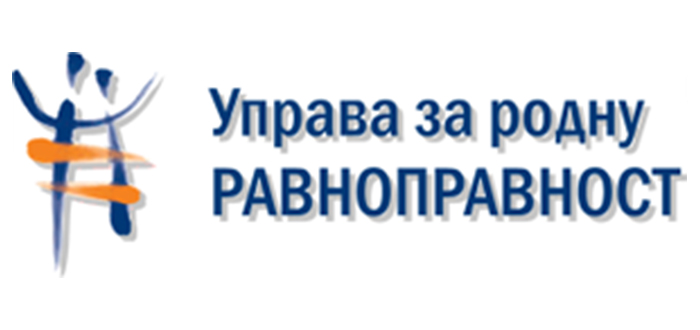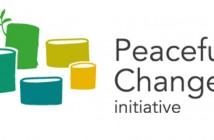Lawyer’s Committee for Human Rights – YUCOM in collaboration with the Gender Equality Directorate has realized a project to improve the participation of women from double discriminated groups in political and public life. The project was carried out during the year of 2012, and supported by the International Management Group and the Swedish International Development Cooperation Agency – SIDA.
The main objective was to investigate the participation of women in political and public life, with a focus on women from marginalized groups.
There were three focus groups with representatives of non-governmental organizations dealing with the protection of the rights of marginalized groups, which are aimed at identifying the causes of discrimination against women in terms of vulnerable groups, identifying the most common problems they face in their daily lives. Also more than twenty semi-structured interviews with representatives of state authorities at the local and national level and representatives of the academic community, as well as media representatives were conducted. There were two trainings with citizens of Serbia, presenting the legal framework for the protection against discrimination and procedures in case of violation of rights, but also the experience of countries in the region and the EU.
Brochure ’Recommendations for improving the position of women and gender equality’ as well as studies on the situation of women exposed to double or multiple discrimination are the results of the project activities, as well as activities that YUCOM implemented in the past.
YUCOM and the Gender Equality Directorate organized a final press conference to present the results of the project. It was discussed what possible recommendations can be made and what measures taken to improve the status of women and how to implement the principle of equal opportunity.
Conference
The position of women exposed to double or multiple discrimination
Belgrade, Center for Cultural Decontamination, Wednesday, October 10th 2012 at 13.00
Lawyer’s Committee for Human Rights – YUCOM and the Gender Equality Directorate held a conference on women exposed to double or multiple discrimination. The results of the project Improving the participation of women from double discriminated groups in political and public life, which was supported by the International Management Group and the Swedish International Development Cooperation Agency – SIDA.
The results of the conducted research, conclusions and recommendations for increasing the participation of women in political and public life, were discussed by YUCOM’s lawyer Kristina Todorovic, Marko Kulić representative of the Gender Equality Directorate and Milan Antonijevic, YUCOM’s Director.
Representatives of civil society, international organizations, the Office of the Commissioner for Protection of Equality, Gender Equality Directorate and the media were present at the conference.
The keynote speaker was Milan Antonijevic, who presented the study and the methodology of the conducted research and the purpose of the project. He pointed out that despite the existence of laws that aim to increase the number of women in the political and public life, members of marginalized groups are still underrepresented, and affirmative action, introduced both by the constitution and the laws, are not being applicated adequately. Then Marko Kulić presented the Program for NAP priorities (National Action Plan for the implementation of the empowerment of women and promotion of gender equality for the period 2010-2015).
The most important areas include the presence of women in public and political life, economic empowerment of women and the media’s attitude towards women.
The primary strategic goal is the presence of women in public and political life, in which the study was conducted, noting that this area is an area to which it is most difficult to reach and that the situation in practice is such that even though we now have 30% of women in Parliament, women are not represented adequately in positions with de facto power.
He also presented publications that have been published by the Directorate until now: Guidelines and checklist for decision-makers regarding the implementation and observance of gender equality, guidelines for the introduction of gender budgeting at the national level in the Republic of Serbia, Women and decision-making at the local level, Brief guide to the women rights in Serbia, etc..
Kristina Todorovic then presented a study which was made by YUCOM and recommendations for improving the position of women and gender equality, as defined in this project. Then she also presented an analysis of the normative and institutional framework: constitutional norms, Anti-Discrimination Law, the Law on Gender Equality and a series of subsidiary legislation.
Particular emphasized was the Law Amending the Law on the Election of Deputies, which provides that on the list every third candidate must be a woman. The specified standard enabled an increase in the number of women in Parliament, but it is indicative that no political party in the recent parliamentary elections overcame the legal norm by putting more women on the list than the prescribed statutory minimum.
The formally established institutional framework was presented: the Council for Gender Equality of the Government of Serbia, the Gender Equality Committee of the National Assembly, and the Department of Gender Equality of the Ministry of Labour and Social Policy, as well as the Commission and the Council, as well as local mechanisms for achieving equality.
During the discussion, the role of local government and the need for free legal, but also psychological assistance to women from marginalized groups was emphasized.
Đurđica Ergić from the Roma Women’s Center “Bibija”, criticized the work of the established councils and commissions since they do not have any activity.
Kristina Todorovic talked about the attitudes of politicians on the participation of women in politics, since it is viewed only as a condition for Serbia to continue it’s European integration, with no awareness of the real need for the participation of women.
Compared to developed countries, there is much less participation of women in the Government of Serbia (26%), while in Sweden or France it is about 50%.
In the following the most common violations identified by the study where represented, it is primarily the right to education, very often children from marginalized groups enrolled in regular school, but later they are transferred to specialized schools, people with disabilities are constantly facing the problem of accessibility, and there is a common view that continuing their education would present too much effort for women with disabilities, so they are usually referred to the traditional female role.
As a continuation of the educational problems of minority groups we can find problems in practicing the right to work and employment: although the legal framework exists, the data shows that women from vulnerable groups comprise greater percentage of the unemployed population compared to the overall average unemployment rate of women (Roma women 39%, displaced persons in 32 % and women with disabilities in 15%).
Although employers who employ more than 20 persons are required to hire a person with a disability, they usually choose to use the legal possibility of paying the penalty instead of hiring people with disabilities. In practice, women with disabilities are generally employees of associations of persons with disabilities, or are self-employed, a very small percentage is employed in the public or private enterprises.
Further more the issues of property and housing were discussed, as well as violence against women where there is an obvious insensibility of state authorities in these proceedings, and women who are the victims of violence in the pre-trial in criminal proceedings are often in contact with the abuser, making their position even more difficult.
Also, the violence often goes unreported, whether emotional or sexual. Members of marginalized groups often do not have registered residence, which is an obstacle in administrative procedures regarding the right to health care. Furthermore, female members of marginalized groups generally associate only within their group and have little contact with the outside world, especially if they are unemployed, which creates the problem of social integration.
Kristina Todorovic then presented the conclusions and recommendations drawn from the study:
• The level of recognition of discrimination is low: proportional to the level of education of the citizens, and inversely proportional to the level of poverty;
• Low participation of women in public and political life;
• Lack of trust in governmental institutions;
• Inequality in the economic sphere;
• The lack of gender-sensitive statistics;
• The use of gender-sensitive language;
• Despite a satisfactory normative framework, discrimination based on sex, including double / multiple discrimination against women is still present in society.





